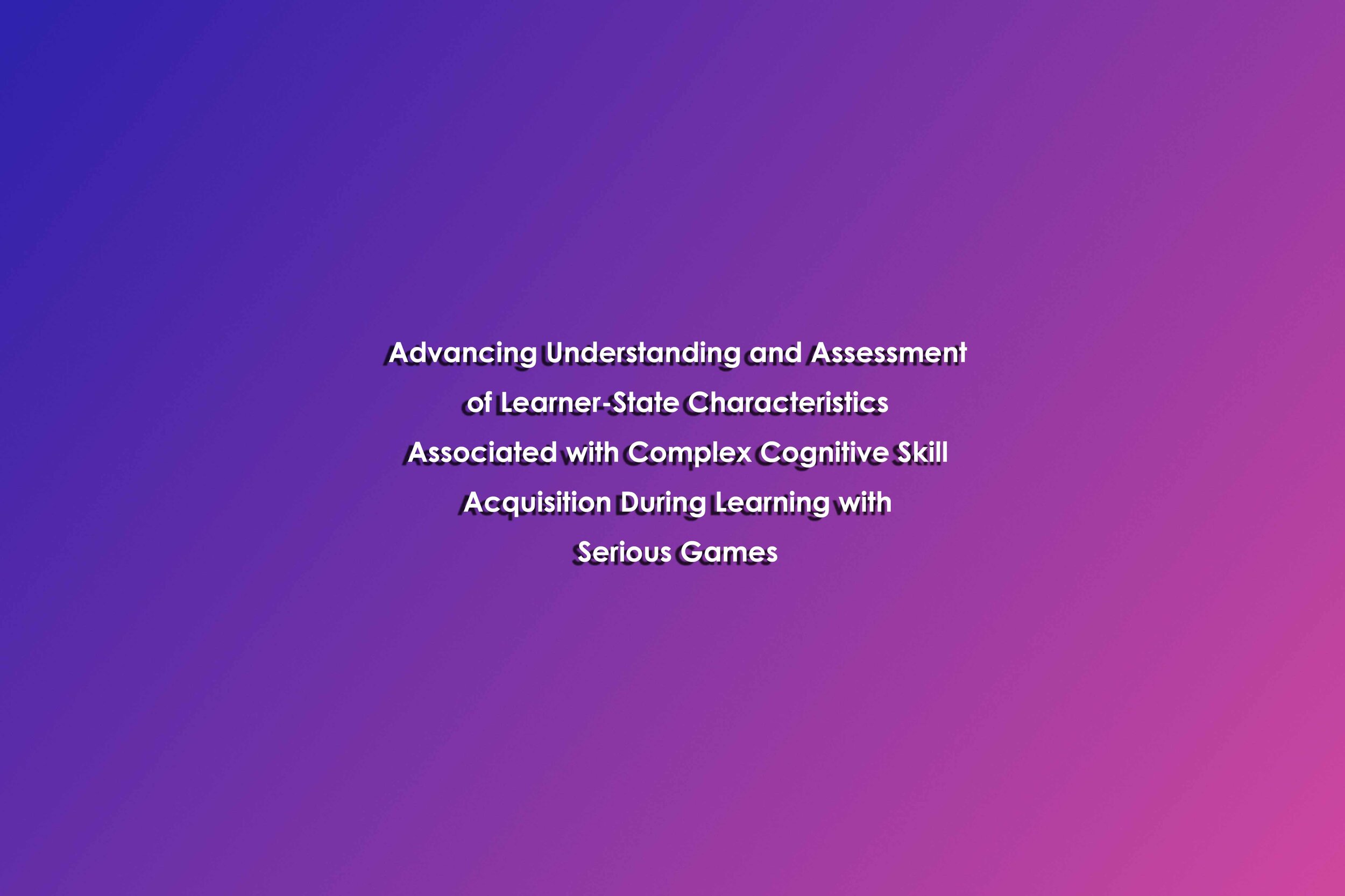Advancing Understanding and Assessment of Learner-State Characteristics Associated with Complex Cognitive Skill Acquisition During Learning with Serious Games
Advancing Understanding and Assessment of Learner-State Characteristics Associated with Complex Cognitive Skill Acquisition During Learning with Serious Games
Advancing Understanding and Assessment of Learner-State Characteristics Associated with Complex Cognitive Skill Acquisition During Learning with Serious Games
Valentin Riemer
Abstract
“Serious games, as one type of multimedia learning environments, are widely assumed to foster the acquisition of complex cognitive skills. However, while the potential of serious games is well founded in theory, empirical evidence for this claim is scattered. One reason for this can be seen in the application of largely inadequate assessments relating to complex cognitive skill acquisition. Secondly, learner-state characteristics (such as learner engagement and learningcentred emotions) during learning can affect learning outcomes in serious games. The interrelations between learner-state characteristics, however, have largely been neglected in research so far. This lack of research can partly be explained by the difficulties of assessing learner-state characteristics during learning. This thesis addresses these shortcomings in three empirical studies. The first study introduces an assessment focused on complex cognitive skill acquisition, based on measuring the development of learners’ mental models. Moreover, two components of learner engagement are tested in relation to the development of mental models, using a learning analytics approach as an online assessment. Self-monitoring (pertaining to the component of cognitive-behavioural engagement) was found to be the only significant positive predictor for the accuracy of mental models after a game. Based on this finding, the second study considers the interrelations between self-monitoring and the learning-centred emotions of enjoyment, boredom and frustration. The results reveal, firstly, that during learning with serious games, diverging temporal relations exist between self-monitoring and these different emotions. Secondly, boredom was found to have a direct negative effect on development of mental models after learning with serious games, whereas an indirect negative effect of frustration was detected via self-monitoring. The results of the second study also point to the issue of continuous emotion assessment during learning. The third study, therefore, investigates the potential for bodily 6 expression to be used as a non-invasive online assessment tool to gauge learning-centred emotions during learning with serious games. Using a depth-image sensor, head posture, activity and upper-body posture parameters could be identified as indicators of enjoyment, boredom and frustration. In conclusion, this thesis not only provides deeper insights into how the learner-state characteristics of learner engagement and learning-centred emotions interrelate to affect acquisition of complex cognitive skills through serious games; it also extends the methodological toolkit that could be utilized in future research to investigate learner characteristics “as they occur” during learning with serious games and in other multimedia learning environments”.
Reference
Riemer, V. (2020). Advancing understanding and assessment of learner-state characteristics associated with complex cognitive skill acquisition during learning with serious games (Doctoral dissertation, Universität Ulm). https://oparu.uni-ulm.de/xmlui/bitstream/handle/123456789/34156/dthesis_riemer.pdf?sequence=5&isAllowed=y
Keywords
multimedia learning environments, engagement, serious games
Category
serious games

